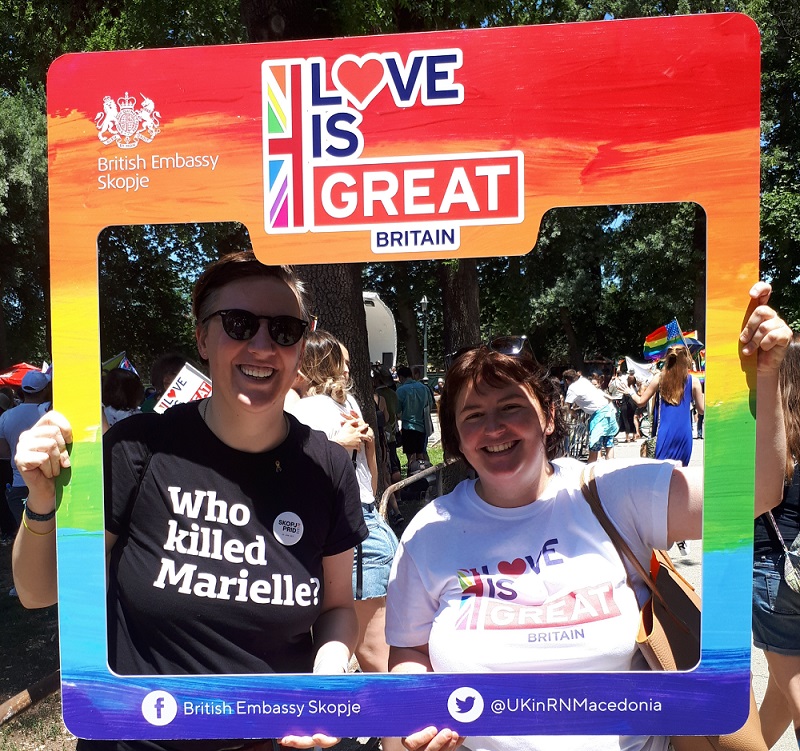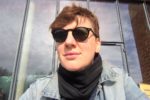27th June 2019 Skopje, North Macedonia
First Skopje Pride parade and the 50th anniversary of Stonewall riots
Introduction by HM Ambassador Rachel Galloway, British Embassy Skopje:
The strongest, safest and most prosperous societies are those in which all citizens can live freely without fear of violence or discrimination, and where all citizens, regardless of sexual orientation and gender identity, can play a full and active part in society. This Saturday Skopje will host its first PRIDE parade and members of my team at the British Embassy Skopje are honoured to be able to join members of the LGBTI community to mark this important occasion. I am sorry that I cannot be there to show my support, but I am delighted to introduce our guest blogger Biljana Ginova. Biljana, a human rights defender, is Co-Chair of the LGBTI Equal Rights Association of Western Balkans and Turkey, and a Board Member of European Lesbian* Conference. As a recipient of our UK Chevening Scholarship programme, Biljana is currently an MA student at University of Sussex focusing on queer international relations.
This year is the 50th anniversary of Stonewall riots that took place in New York in 1969. Stonewall, a bar in New York, at that time was a gathering for the LGBTIQ (lesbians, gays, bisexuals, trans people, intersex and queer) community, but also people of colour, those from poor communities, sex workers and other people making life on the streets. On that early morning on June, 28th 1969, the police raided Stonewall and started arresting those in there for “disorderly act”. The riots started as a confrontation to the police attack, but soon people from the local neighbourhoods, other community members and activists joined for what turned out to be three days of sustained riots and the start of the gay liberation movement.
The history of oppression is essential to understand the importance of the Pride Parades. The first Pride Parade in Skopje comes after long homophobic, transphobic and lesbophobic history. In North Macedonia, only two percent of the LGBTI people are open to the overall environment about their sexual orientation, gender identity or sex characteristics. We are among the most invisible communities in our society. Every attempt for visibility has been judged, shamed or violated. We have been sent to our “four walls” every time we raise our voices. Our sexualities and genders are considered as the biggest threat in this society, and we are the disease that will infect the otherwise healthy nation. We are beaten on the streets, bullied in the schools, violated in our homes. We are not safe in our workplaces, we cannot talk openly to our doctors. We are not able, like cisheteronormative people, to hold hands in the city parks, to kiss with our loved ones or to show any form of care for each other in public. We are not even able to go to post or a bank without being questioned about our gender expression and why it is not in line with the gender marker. We do not have the same privileges. We do not live the same safe lives because we are simply not the same. And while everything in this society pushes us to be “same” as the dominant group, we do not choose that for us. It does not come easy in societies like Macedonian, but we choose to celebrate us for who we are. To take on the streets and to walk proudly, holding hands and kissing, and making the Pride a political stand against the harassment, violence and shame that are thrown on us.

I salute the state representatives that have publicly stated their support to the LGBTIQ movement and to those that will march with us this Saturday, and I expect their efforts will not stop there. I urge them to work closely with LGBTIQ people and the activists, to understand the problems faced even by the most marginalized among us. This Saturday, we will walk with pride. We will take out our queer bodies from the closets and our “four walls” and will take them on the streets. We will parade, proud for surviving, proud for who we are and proud for being part of something much bigger than our small communities.”
To Pride!
Note: British Embassy Skopje offers its blog platform for guest posts to members of organisations who are partner implementers of UK’s programme assistance to North Macedonia. The views expressed in the guest posts are those of the authors.
